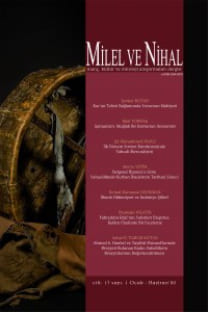İslamcılık ve Bir Modern Melankoli: Eve Dön(eme)mek
İnsanlar için bir kez ve bütün zamanlar için geçerli bir modelin varlığı düşüncesi modern ütopyaların bir tahayyülüdür. Bu tahayyül bütün siyaset felsefelerini eninde sonunda yeniden gerçekleştirilebilecek bu modeli tekrar tesis etme telaşına sokmuştur. Modern ideolojiler bu açıdan idealize ettikleri bir ideal modele tekrar dönmek üzere kitleleri motive etmeye çalışmışlardır. Ancak bu modellere ne zaman ulaşıldığı sanılırsa o kadar da uzaklaşıldığı gerçeği travmatik hayal kırıklıklarıyla birlikte yaşandı. Tarihin bir döneminde yaşanmış bir modeli anakronik bir yolla tekrar restore etmeye çalışmak bir Siyonizm olarak tipleştirilebilir. Yahudilerin 2500 yıl önce yaşanmış tecrübelerini modern zamanda bir daha gerçekleştirme çabaları bütün dünya için birçok acıya, kendilerinde ise gerilim yüklü bir melankoliye mal olmaktadır. Oysa bir yandan da aslında hiçbir zaman o modele geri dönme sağlanamıyor. İslam ise tarihle bu şekilde bir inatçı didişme yerine, hicreti baz alan varoluş modeliyle hem tarihi hem bütün insanları daha gerçekçi, ulaşılabilir olana yöneltmektedir. Böylece gerçeği ziona kurban etmeyen yaklaşımıyla İslam bir hayat dini olarak, melankolinin karşısına siyaseti koyar.
Anahtar Kelimeler:
Siyon, hicret, Müslüman diasporası, melankoli, zion olarak devrim.
Islamism and a Modern Melancholia: Away From Home-Coming
The idea of the existence of a model once and for all for human-being is the product of the imagination of modern utopias. This kind of imagination has mobilized all political philosophies to the quest for eventually establishing this model. Modern ideologies have tried to mobilize the masses for the efforts of restoring back this model. However, as much as people have thought to have approached the fulfillment of this model, they have been disappointed for they indeed have realized the fact that this closeness is just an illusion. The attempts to restore a historical experience assumed as once and for all are typified as Zionism. The strive of the Jews for restoring their motherland on the base of being “promised” has caused much pains for humanity, and a melancholia filled of tension on themselves. In fact, however, it is impossible to catch back that imagined model. Islamic philosophy of history is assumed to take hijrah as its existential base and by so doing it proposes more realistic and touchable experience. Thus, it is argued in this article that Islam does not sacrifice the real for the sake of an imagined Zion, a promised golden age or ideal experience so that it put the political against the melancholia.
Keywords:
Zion, Hijrah, Muslim Diaspora, Melancholia, Revolution as Zion.,
- ISSN: 1304-5482
- Yayın Aralığı: Yılda 2 Sayı
- Başlangıç: 2003
- Yayıncı: Milel ve Nihal: Eğitim, Kültür ve Düşünce Platformu Derneği
Sayıdaki Diğer Makaleler
Yahudilik’te Sürgün Metaforu: “Boş Ülke” Miti ve “İncir” Benzetmesi Çerçevesinde Bir Değerlendirme
Almanya’da Türkler: Sürekli Yabancılık, Kültürel Çatışma ve Din
European Muslims and The Qur’an -Interpretation and Integration in Diaspora-
Tebdîl-i Mekânda Ferahlık Var mıdır veya Eyne’l-Mefer?
Tek Tanrılı Dinler Karşısında Kadın
Teolojik Uyum Sorunu: Luther ve İslam
Mitolojik Bir Hafızanın Yönlendirdiği Bir Göç: Puritanist Göç Hareketi
Asurî Göçleri ve Kimlik Arayışı
Diasporada Diyalog? Batı’da Müslüman Grupların Dinlerarası Diyalog Perspektifleri
